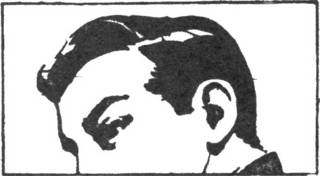The South China Morning Post runs a language column titled Language Matters by Lisa Lim, which occasionally picks up Indian words that have been adopted in Hong Kong English. Many of these words are the legacy of a shared colonial past, borrowed by the English in India and taken by them to the other colonies they ruled in Asia. A recent column deals with one such word, which is now rarely used in its colonial form in Indian English. As Lim points out, the word shroff, which is related to the Gujarati saraf, has fallen out of use elsewhere, but survives in Hong Kong English. It entered the language via Portuguese, which was the lingua franca of Asian ports before the English came to these shores.
Hobson-Jobson defines shroff as an expert employed by banks and mercantile firms 'to check the quality of the dollars that pass into the houses'. Over the years shroff has meant many different things – money changer, silver expert, customs officer, court money collector, cashier’s office – but is now used narrowly in Hong Kong to refer to a cashier, cashier’s office or payment booth, in government offices, hospitals and car parks. Meanwhile in India, the word is more commonly encountered as a Gujarati surname and any mention of shroffage would probably bring this to mind.As far back as the early 1600s, the word “shroff” – including the forms “shrofe”, “sheroffe” and “sheraff” – has been used in the English language. It was documented in colonial writings on India, referring to local Asian bankers or money changers in the British East Indies. The word entered English via the Anglo-Indian English “sharaf”, but its origins lie in the Arabic sarrāf (“money-changer”), entering Persian as sarrāf , and Gujarati as šaraf in the period of Perso-Arabic influence over the language during the mid-13th to mid-19th centuries of Persian Muslim rule – the Delhi sultanate and the Mughal empire – in the Indian subcontinent.It entered Portuguese as xaraffo during the European coloniser’s long occupation in India from the mid-16th century – referring to customs officers and money-changers, and also providing us with xarafaggio (“shroffage”, the xaraffo’s commission), as noted in a 1585 colonial report from Goa.

3 comments:
The Greek word for 'money-changer' is σαράφης [sarafis], and the Albanian word is saraf. I love these wandering words!
Possibly from Turkish sarraf, 'moneychanger'?
Sure, absolutely; both languages have tons of loan words from Turkish (which in turn often come from Arabic via Persian). I just think it's fascinating how the same Arabic words turn up in such far-flung places as the Adriatic and South Asia (and often in Spain as well).
Post a Comment